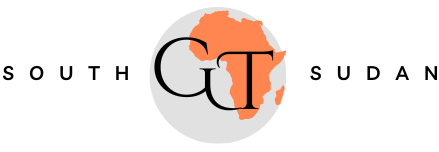IOM provides essential health care services to people arriving in Wunthou border -the point of entry between Sudan and South Sudan. ©IOM2024/Nabie Loyce
The International Organization for Migration (IOM) intensified its response to a cholera outbreak that has emerged in Renk, Upper Nile state, which serves as the main point of arrival for hundreds of thousands fleeing the ongoing conflict in Sudan.
Renk also hosts a transit center where more than 13,000 arrivals are sheltered.
The South Sudan Ministry of Health declared the outbreak after six cases were confirmed in Renk.
So far, the situation remains critical with 59 suspected cases, reported by the South Sudan Ministry of Health.
“The response team on the ground is working tirelessly to ensure that those affected receive the necessary care and support, while preventive measures are being implemented to limit further spread,” said Aaron Adkins IOM’s Emergency Response Coordinator in South Sudan.
The influx of displaced people arriving in overcrowded conditions with limited access to clean water and sanitation has amplified the risk of cholera transmission in both the transit centers and host communities.
In response to this urgent public health crisis, IOM has activated comprehensive emergency measures in close coordination with local health authorities and partner organizations.
More than 684,000 people fleeing the conflict in Sudan have entered through the Wunthuo Point of Entry (PoE) in Renk. Here, IOM has established a presence where it supports surveillance activities and the identification of suspected cholera cases. Clinicians trained by IOM are stationed at the PoE and in transit centers in Renk and Malakal to enhance rapid detection and reporting.
Recognizing the importance of immediate treatment, IOM has set up Oral Rehydration Points (ORPs) at both the PoE clinic and transit center to provide life-saving hydration to affected individuals.
Risk communication has been an essential aspect of IOM’s response, with ongoing efforts to educate the community about cholera prevention, the importance of hygiene practices, and the need for early treatment.
This outreach helps empower individuals to take proactive measures to safeguard their health.
In addition to these efforts, IOM has strengthened local capacity by training clinicians on case definition, identification, and the use of rapid diagnostic tests. These trainings are crucial for prompt detection and response to cholera cases, ensuring that patients receive timely and effective care.
IOM’s response has also focused on water, sanitation, and hygiene (WASH) initiatives to curb the spread of the disease. These include ensuring that individuals receiving Onward Transportation Assistance (OTA) are sensitized on cholera response protocols to minimize risks during their transit.
The outbreak in Renk poses a significant threat to vulnerable populations arriving from Sudan, who are already grappling with severe challenges. IOM’s multi-faceted response, working with other humanitarian organizations under the coordination of the public health emergency operations center, aims to contain the outbreak and protect those most at risk.
IOM remains committed to supporting the Government of South Sudan and collaborating with partners to deliver essential assistance, protect public health, and enhance resilience in Renk and surrounding areas. Continued support from the international community is essential to sustain and expand these critical interventions as the situation evolves.
German Federal Foreign Office, USAID’s Bureau for Humanitarian Assistance (BHA), Canada support IOM’s response to the cholera outbreak in Renk.




